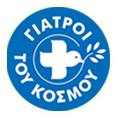(Paris, 18 March, 2014) While new treatments are entering the market and substantially modifying the hepatitis C virus (HCV) care and treatment, Doctors of the World – Médecins du Monde (MdM) has published a study on the strategies to implement universal access to treatments.
More potent, with fewer side effects, direct-acting antivirals (DAAs) are currently coming onto the market and are significantly reducing the duration of the treatment and are demonstrating higher cure rates. But, according to Thierry Brigaud, president of MdM: « While hepatitis C kills 350,000 people per year, the pharmaceutical companies’ business strategies will make these treatments, yet promising, out of reach for the vast majority of people living with HCV worldwide. At least 185 million people worldwide have been infected with HCV. 85% of them live in low (13%) and middle (72%) income countries.
At the end of 2013, Gilead’s sofosbuvir has been approved and launched onto rich countries’ markets with an astronomically high prices varying between USD 80,000 – 90,000. Supported by extensive media coverage, Gilead, recently announced potential selling prices of sofosbuvir starting at USD 2,000. Like Gilead, other companies proclaim promoting access to their medicines for the largest number through voluntary licensing or tiered pricing. It is not the case at all.
In a study published today[1], MdM analyzes these strategies by combining HCV epidemiological data with pharmaceutical companies strategies, notably those implemented in the fight against HIV. This study shows their impact on access to the DAAs and the dead ends in which the low and middle income countries, the most affected ones, could be in. For example, in Egypt where close to 12 million people have HCV, providing sofosbuvir (alone), at a minimum price of USD2,000, to only those Egyptians at an advanced stage of the disease (F3 and F4) -and who need treatment urgently- would cost the government almost 62 times the entire annual budget of the Egyptian HCV care & treatment program (2008-2012).
According to MdM, these treatments do not have to cost this much. The study demonstrates that other – far more effective strategies can and should be implemented, like those successfully conducted in the fight against HIV. Generic competition through compulsory licenses and patent oppositions, led to radical decreases in HIV drug prices. The same applies with the new hepatitis C treatments that can be produced generically for a tiny fraction of that price. For example, a 12-week course of sofosbuvir, produced generically, may cost in the range of USD68-136[2].
MdM asks for the implementing of universal access to treatments for people affected with HCV.
Press Contacts:
Aurélie Defretin / Emmanuelle Hau
+331 44 92 13 81 / 14 31 – +336 09 17 35 59
infomdm@medecinsdumonde.net
Download the study here in english and in french
[1] Londeix P. With the contribution of Forette C., New Treatments for Hepatitis C Virus: Strategies for Achieving Universal Access, Médecins du Monde, March 2014.
[2] Hill A, Khoo S, Fortunak J, Simmons B, Ford N. Minimum Costs for Producing Hepatitis C Direct-Acting Antivirals for Use in Large-Scale Treatment Access Programs in Developing Countries. Clin Infect Dis. 2014 Feb 13.
